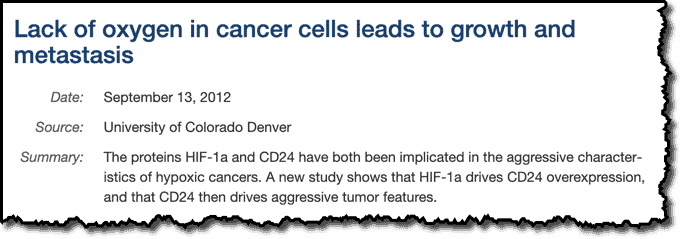
And you probably have it in your medicine cabinet right now…
Unsubscribe | Report as spam | Change email preferences
—-Important Message From Lawrence Lanoff—-
Believe it or not, this one word wakes up her naughty side…
This “wake up her naughty side” word is very, very powerful for both single or married guys…
…because this naughty word opens up a sexual buffet of sweaty, amazing intensity that you thought women only faked in “those” movies.
With this specific naughty word, you can access her deepest, most secret sexual desires just by whispering a few seemingly innocent words in her ear…
So what is the word?
Well, I’ve already told you it just now…
Can you find it? If not, I reveal the naughty side word here…
———-
I take this to slash my cancer risk
As a health researcher with over 20 staff members, I have been studying potential cancer treatments and I’ve found that low-dose aspirin has many benefits.
It reduces the risk of cardiovascular diseases and stroke.
And higher doses of aspirin have long been used for other things – for example as a painkiller.
There are also many reports in the medical literature of high doses of aspirin helping with cancer treatment.
But what about moderate doses?
In this article, we will look at how moderate doses of aspirin can significantly reduce the risk of colorectal cancer in the long term.
The doses used can increase the risk of bleeding slightly. But this can be mitigated by the use of a couple of other supplements.
This is very useful information for people who are at risk of developing colorectal cancer
The human research was carried out at Harvard Medical School in Boston. The paper was published in JAMA.
The researchers were filling a gap in medical knowledge.
They were looking at the long-term effects of different doses of aspirin on the risk of developing colorectal cancer.
“We examined the influence of aspirin in prevention of colorectal cancer.”
The researchers had information on over 80,000 women collected over a period of about 20 years.
“82,911 women enrolled in the Nurses’ Health Study providing data on medication use biennially since 1980 and followed up through June 1, 2000.”
A little over 1% of the people in the study developed colorectal cancer over 20 years.
The study showed that women who used a moderate dose of aspirin on a regular basis had an overall reduced risk of colorectal cancer.
Aspirin users who used 2 or more 325mg aspirin tablets per week were 23% less likely to be diagnosed with colorectal cancer.
These are larger doses than the standard baby aspirin used for cardiovascular disease prevention.
They are generally 75mg, 81mg, or 150mg.
“Among women who regularly used aspirin the multivariate relative risk for colorectal cancer was 0.77 compared with non regular users.”
The reduction in colorectal cancer diagnosis became significant after 10 years of using at least 2 of these tablets per week.
The researchers found a dose relationship too. The more aspirin people used, the greater the reduction in colorectal cancer risk.
“The risk was 0.89 for 2 to 5 aspirin per week, 0.78 for 6 to 14 aspirin per week, and 0.68 for more than 14 aspirin per week.”
Compared to women who did not use aspirin, those who used 14x 325 milligrams of aspirin per week had a reduction in colorectal cancer of more than 50% after 10 years.
“Notably, women who used more than 14 aspirin per week for longer than 10 years in the past had a relative risk for cancer of 0.47.”
This is really fantastic news for people who are at high risk of developing this type of cancer.
It’s important to know that using this much aspirin can cause side effects – unlike low-dose aspirin where side effects are extremely rare.
“The incidence of reported major gastrointestinal bleeding events per 1,000 person-years also appeared to be dose-related.”
Incidence of gastrointestinal bleeding increased with aspirin use.
“Bleeding events were 0.77 among women who denied any aspirin use, 1.40 for 6 to 14 aspirin per week; and 1.57 for more than 14 aspirin per week.”
Taking an average of 650 mg of aspirin per day for 10 years will almost certainly necessitate some countermeasures to prevent bruising and bleeding.
Many people who use this much aspirin in the long term find that 2 to 3mg of vitamin K2 MK4 and a few ounces of collagen/gelatin per day…
…are enough to counteract the blood thinning effect of aspirin.
However, combining this much aspirin with other blood thinners like warfarin or high-dose vitamin E can be dangerous.
“These results suggest that optimal chemoprevention for colorectal cancer requires long-term use of aspirin doses substantially higher than those recommended for prevention of cardiovascular disease, but the dose-related risk of gastrointestinal bleeding must also be considered.”
You should always consult your healthcare practitioner for guidance on medical diagnosis and treatment.
—-Important Message About Preventing Cancer—-
A pinch of this cheap white powder helps kill off cancer cells in men
Multiple studies like this one show that cancer cells thrive in low-oxygen states…
So cancer cells hate oxygen the way a burglar in the night hates bright lights.
And this natural white powder — it oxygenates the cells, making cells healthier and more naturally resistant to cancer.
It’s like a spotlight shining directly onto every single one of your cells, protecting them and ready to act if any threat appears.
And you can get a pound of it for 89 cents or less at most grocery stores. You may even have some in your kitchen right now…
Discover the cheap white powder that oxygenates the cells and helps kill cancer cells — my favorite “over the counter” remedy…
———-





